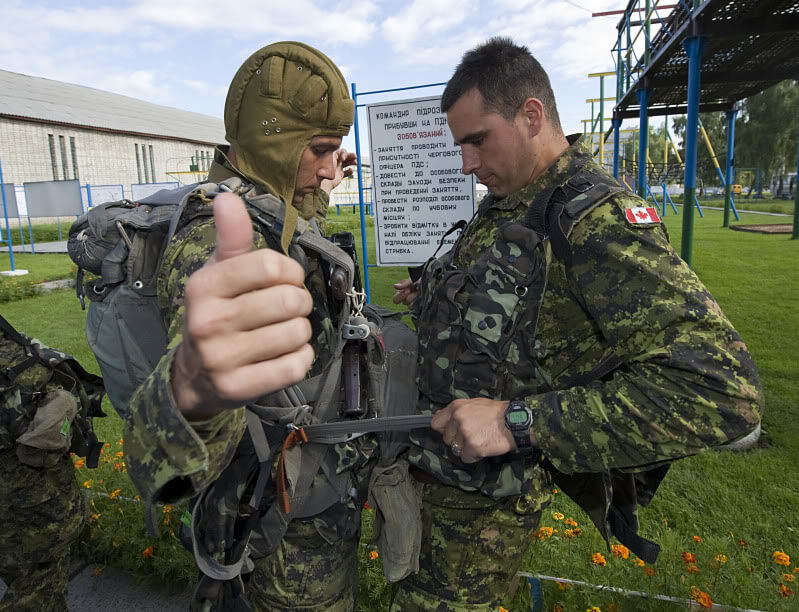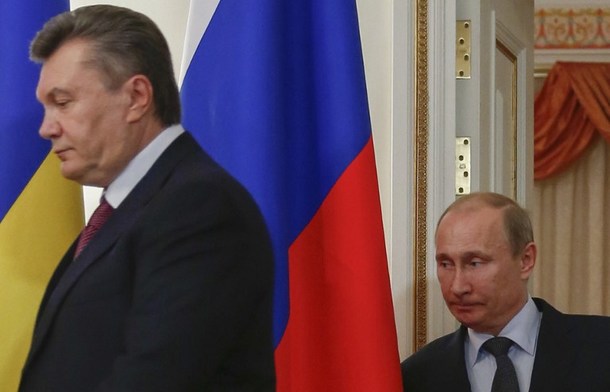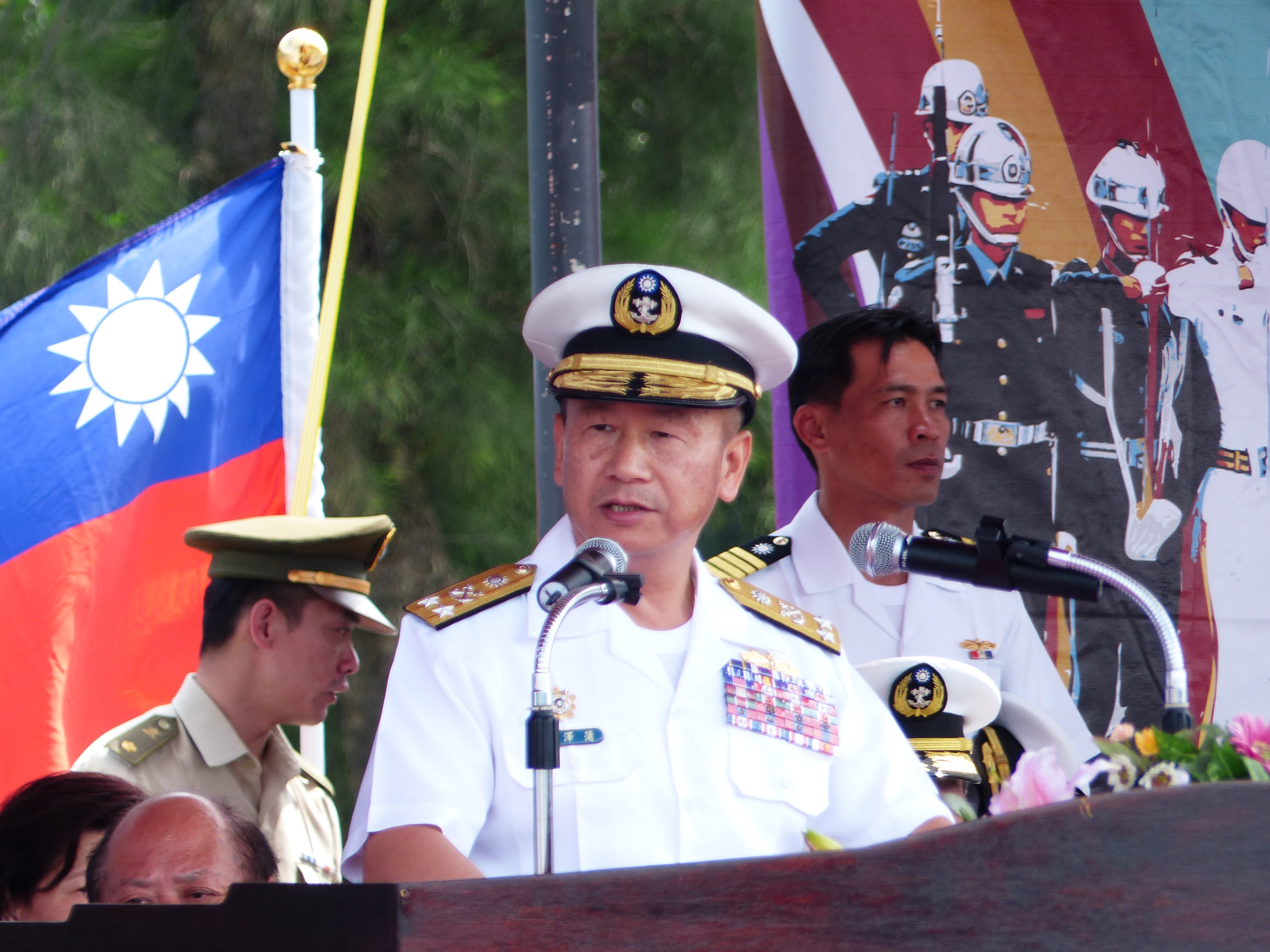Dialogue in its true sense – parties engaging with each other’s arguments and not simply speaking past one another – is as rare as it is important when it comes to the conflict that has engulfed Ukraine. This is why forums, like the day-long symposium hosted on February 22 by Science For Peace at the University of Toronto, are truly valuable. The symposium featured speakers based in Toronto, Ottawa, Washington, Kyiv and Moscow from the academic, media, business and non-profit sectors. Discussion was organized around three panels: “The Background Factors”, “Who Has Done What and Why?” and “What Are Some Solutions?” The analysis is organized around two major themes that emerged during the last two panels: culpability and the prospects for peace.
Who is responsible?
Russia
While two speakers placed blame squarely at the feet of Russia, most acknowledged that other parties contributed to the crisis. Borys Wrzesnewskyj, a former MP and prominent member of the Ukrainian-Canadian community, argued that Russia’s actions in Crimea and eastern Ukraine were part of a comprehensive plan conceived well before the turmoil in Kyiv presented a chance to execute it. He cited a leaked document obtained by a Russian investigative newspaper that allegedly laid out plans for the Crimean scenario. Other speakers countered that most states develop military contingency plans for a wide range of scenarios, however improbable some may be. Russia’s actions are best viewed as opportunistic and reactionary, they argued, rather than as part of a grand strategy to dismember Ukraine and destabilize the region.
Paul Robinson, a historian at the University of Ottawa, referred to the timeline of armed rebellion in Eastern Ukraine as evidence. Rebels in Donbas first took up arms without direct material support from Russia. It wasn’t until several months into the conflict that a significant number of military equipment and troops arrived. Robinson concluded that Russia has been responding to actions by other parties – such as the armed insurrection by the rebels and the launch of anti-terrorist operations by Kyiv – rather than leading them.
Fred Weir, a Moscow-based correspondent for Christian Science Monitor, shone a light on the view from the Kremlin. For years, Russia has felt alienated on the world stage and has learned to see the international arena as a “naked geopolitical fight”. According to this worldview, Russia is simply playing the game.
Ukraine
Several speakers pointed out that authorities in Kyiv made a series of mistakes that exacerbated the situation. Weir noted that the decision to engage militarily was counterproductive. Instead of squashing the nascent rebellion, the anti-terrorist operation turned many more against Kyiv. Weir and other panelists argued that Ukraine’s new government should have focused on reassuring the disgruntled regions that they had a place in the new order through outreach and political concessions. Instead, the regime change in Kyiv created a crisis of legitimacy and Kyiv’s actions fed the fears stoked by Russian propaganda and alienated the Donbas further.
This is an important point, often missed in mainstream analyses. However, it is best applicable to the early stages of the conflict. Panelists failed to sufficiently address what alternative methods the central government could have employed to deal with an armed insurgency capturing administrative buildings and territory. A discussion of viable alternative options open to the government and the contextual factors would have enriched this line of argument.
The West
Robinson and Weir argued that the West has not always played a positive role in this conflict. According to Robinson, the West had applied a double standard in how it treated the Maidan revolution: it rushed to validate the change in power achieved in a way that went against accepted democratic principles. This is perhaps an oversimplification. At the surface, this claim makes sense: regime change forced by violent protest would not be tolerated in a Western democracy. But dig a little deeper and the comparison does not stand. The Yanukovych regime was nothing like what we imagine a Western democracy to be; the Maidan was much more than a mob with pitchforks; the president fled the capital before he was stripped of his powers; the government that took power was confirmed in national elections deemed free and fair by international observers.
What should be done?
Most panelists stressed political, not military, approaches to peace. A consensus emerged about military victory being highly unlikely. Consequently, political solutions were emphasized.
Two panelists argued that the West should supply Ukraine with defensive weapons. As Andriy Kulykov, a Ukrainian journalist, put it, since Russia is the aggressor, the way to stop the conflict is to stop Russia. Robinson effectively countered the lethal aid argument by pointing out that Russia can always out-escalate in Ukraine. Furthermore, he noted that Ukrainian army was failing in terms of leadership and strategy and not for the lack of weapons. Instead of fueling the war, the West should use its leverage to convince Ukraine to modify its own counterproductive behavior.
A majority of the panelists agreed that a path forward must include some degree of autonomy for Donbas. John Feffer, from the Institute for Policy Studies in Washington, illustrated the matter through a stark metaphor: an organism may need to sever a limb in order to survive. Whether the outcome is decentralization, federalization or a split up of the country, the rebels must be engaged in a meaningful way in the discussion over what form autonomy will take, noted Robinson.
An important element these arguments largely omitted is Kyiv’s ability to win broad public support for negotiations with the rebels and a new status for Donbas. While Feffer rightly noted that the concept of fairness must be forgotten when looking for a resolution, this is a difficult truth for Ukrainians to swallow.
Feffer and Weir both noted that the extreme polarization of sentiment constitutes a major impediment to a quick resolution. “When I walk into the room,” Feffer said at the start of his remarks, “people want to know which side I am on – the fascists in Kyiv or the fascists in Moscow.” Andre Kamenshikov, a representative of Nonviolence International in post-Soviet states, provided a refreshing perspective and suggested a potential avenue for bridging this divide. Kyiv should focus on winning over the hearts and minds instead of military battles. Media is one tool in carrying out this strategy, but not in the way Kyiv has been using it. Recent steps to limit or influence the press taken by Kyiv to counter Russian propaganda will only backfire, Kamenshikov noted. Another tactic is to support civil society initiatives that increase dialogue, which Kamenshikov has already seen bearing some fruit.
While positive predictions were scarce, several panelists offered an important source of hope. The current conflict is not based on ethnic divisions, which are more entrenched and more difficult to overcome than divisions based on opposing worldviews. Furthermore, Ukraine’s alignment with the EU can exert a positive unifying force, as demonstrated by the example of the former Yugoslavia, a region that has found a way to deal with the legacy of war in a fairly short timeframe. The long view, therefore, may offer better prospects for peace than the immediate future.





